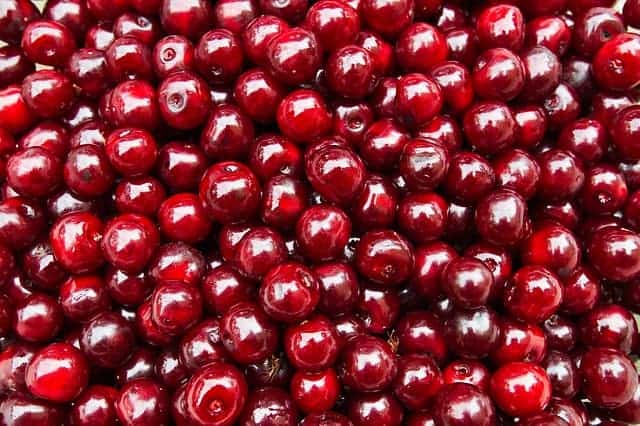Quercetin is a natural substance with a rich arsenal of health-promoting properties. It has a positive influence on our immunity, helps fight inflammations caused by viruses and bacteria and significantly alleviates symptoms of various types of allergies. Quercetin can be found in many food products, it is also widely available as a dietary supplement. Learn more about this valuable substance and see how it can improve your health!
Table of contents
What is quercetin?
Quercetin belongs to the flavonoids group (and the flavonols subgroup) and can be found in plants, including tea and many fruit and vegetables, where it acts as a pigment and a protective shield against harmful factors. Since this substance shows a number of beneficial properties for the human body, it is widely used in medicine. The main asset of quercetin is its strong antioxidant, anti-inflammatory and anti-allergenic properties. Much has been said recently about its anti-cancer abilities.
Quercetin – occurrence in food and dietary supplements

Just like other plant substances with high health-promoting values, quercetin is also available in the form of numerous dietary supplements. It is most often found in the presence of other elements with related properties, with the most popular combinations being: calcium with quercetin, calcium with zinc and quercetin, and quercetin with vitamin C. The individual components, acting in synergy, strongly strengthen the body’s immunity and show high anti-allergic abilities.
Apart from dietary supplements, quercetin is also contained in a whole range of plant foods which appear on our tables every day.
Natural sources of quercetin include:
- spinach,
- broccoli,
- kale,
- cabbage,
- onions,
- squash,
- apples,
- cherries,
- strawberries,
- black currants,
- dark grapes,
- blueberries,
- orange,
- cranberries,
- elderberry,
- chamomile,
- St. John’s wort,
- tea,
- red wine,
- honey.
It’s worth remembering that in order to get optimal benefits from quercetin, it should be supplemented (or foods rich in it should be consumed) regularly and for a long time. This doesn’t mean you should overdo it.
Quercetin – anti-allergic effects
One of the most common reasons why we reach for quercetin is because of its excellent anti-allergic properties. This substance reduces inflammation, blocks the release of histamine and reduces allergic reactions in case of contact with an allergen. Using quercetin we become more resistant and less prone to allergen attacks, and thus less prone to allergy symptoms such as: rashes and other skin changes, sneezing, hay fever. As a result of quercetin, such symptoms disappear or are visibly alleviated.
Quercetin – health promoting properties. When is it worth using quercetin?

Quercetin is a strong antioxidant, thanks to which it inactivates free radicals and minimises oxidative stress on cells. In this way, it prevents the organism’s aging processes and strengthens the protective barrier against diseases. The anti-cancer properties of quercetin have recently received particular attention. This substance can inhibit the proliferation of cancer cells and also contribute to the death of cancerous cells.
An important property of quercetin is its extremely beneficial effect on the cardiovascular system. This valuable flavonoid improves circulation, supports the heart, stabilizes blood pressure, seals and strengthens blood vessels, helps lower bad cholesterol levels. Thanks to these properties quercetin protects us from heart attacks, strokes, atherosclerosis, thrombosis. It can also be an invaluable support in the fight against varicose veins and spider veins.
Read also: Varicorin – a multi-ingredient weapon against varicose veins, spider veins and leg swelling
Quercetin strengthens immunity, reduces inflammation, weakens the activity of viruses, has antibacterial and antifungal properties. It helps in colds, flu, respiratory infections, asthma, psoriasis, diabetes. It can also be useful during weight loss, because it prevents the formation of adipocytes (fat cells) and the storage of reserves in the form of fat tissue. Its positive effects will also be appreciated by people exposed to stress and physical and mental exertion. Quercetin reduces fatigue, improves mood and relieves nervous tension.
Quercetin – side effects, interactions with medicines
When using dietary supplements with quercetin, remember to take them strictly according to the manufacturer’s recommendations. Why? Because if you take too large doses of quercetin, you put yourself at risk of adverse side effects, such as heart disorders or blood pressure spikes, especially if you take antihistamines at the same time. If taken in excessive doses, quercetin can also weaken the effect of certain antibiotics.
Quercetin opinions
Quercetin can boast of very favorable reviews. People who use it systematically often say that they have noticed a marked increase in resistance to allergies, infections, colds, inflammation. Positive opinions about quercetin also come from people who take it to prevent or relieve ailments related to the cardiovascular system. According to the comments of Internet users, quercetin is one of the most effective plant substances that comprehensively support immunity and improve health in various aspects.
Read also: Vitamins for immunity

